“Midnight is upon us”—the Cuban Missile Crisis as seen at the time, in one person’s words
By Harrison Brown | October 16, 2022
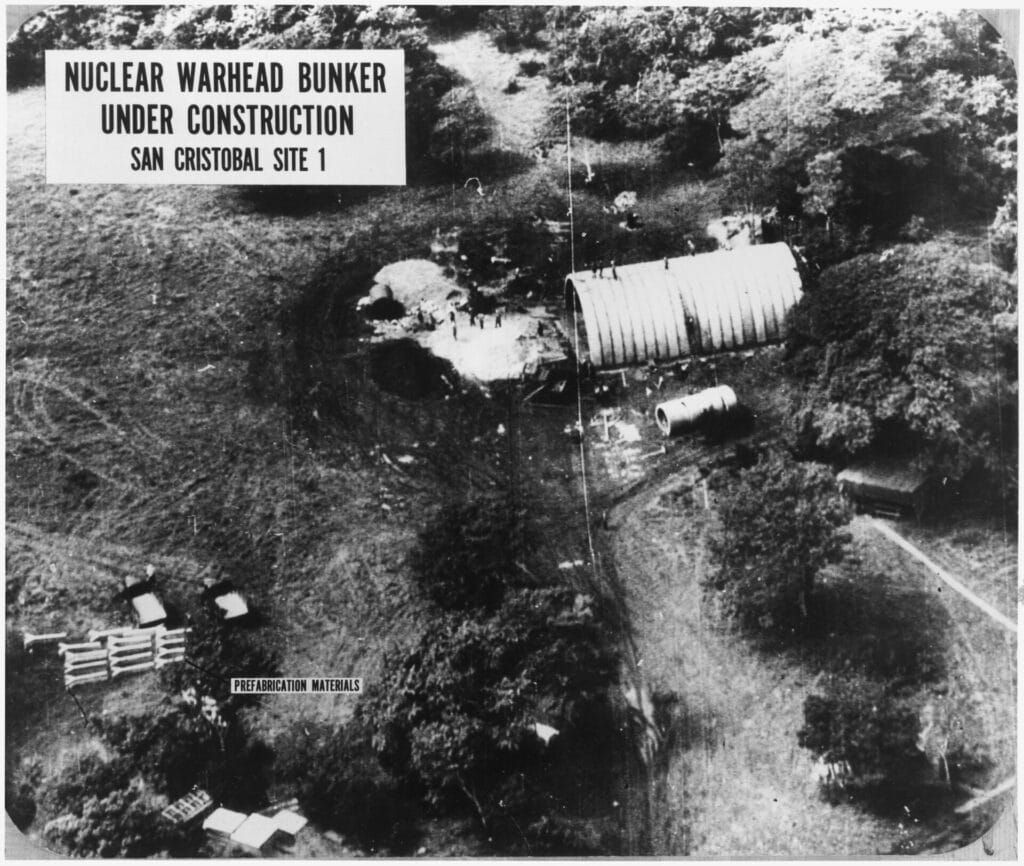 Soviet nuclear warhead launch site in Cuba. Image courtesy of US Defense Department/US National Archives and Records Administration
Soviet nuclear warhead launch site in Cuba. Image courtesy of US Defense Department/US National Archives and Records Administration
(Editor’s note: On the anniversary of the start of the Cuban Missile Crisis, the Bulletin of the Atomic Scientists is reprinting this guest editorial from our archives, word-for-word as it was written during the height of the 13-day stand-off.)
OCTOBER 24, 1962: I am writing on a plane en route from Los Angeles to Washington and for all I know this editorial, honoring the twentieth anniversary of the first controlled release of nuclear energy by man, may never be published. This morning, the governments of the United States and Soviet Union were moving relentlessly toward armed conflict in the Caribbean. Missiles and planes stand poised on both sides, read to deliver their deadly weapons to their targets. By tomorrow, if inflexibility persists or someone in the Soviet Union or in Cuba or in our own government makes the wrong decision, the great all-out nuclear war, which we have discussed and feared for twenty years, may be triggered. Never in history have people and nations been so close to death and destruction on such a vast scale. Midnight is upon us.
As I look back over the events of the past twenty years, I feel frustrated and tired, sorrowful and angry. My anger is directed broadly. It is directed at a substantial number of Americans who have been in positions of political power during the last twenty years and who failed to use that power wisely. It is directed even more strongly at fewer, but individually more powerful, Russians. It is directed in particular at all persons who, partly through ignorance and partly through failure to look at these problems in true perspective, have brought us to the brink of nuclear war.
Looking back over Soviet and American actions since that historic day under the stands of Stagg Field, the greatest compliment one can pay the two powers is that at least until the present a major nuclear war has been avoided. This has been no mean accomplishment. But virtually all persons who think about these problems recognize that the status quo cannot be perpetuated indefinitely. In the absence of meaningful agreements between the United States and the Soviet Union we are destined to blow each other out of existence. Perhaps tomorrow will be the day. Or perhaps we will survive this crisis, and in another year a new one will precipitate the conflict.
In looking back, one cannot help but wonder what the situation would be today had decisions been made differently. What would our present position be if we had not used the bomb in the first place? What would it be if we had not placed a substantial part of our post-war policy on the estimate that the Soviet Union would require many years or even decades to develop her own nuclear weapons? What would it be if we had behaved differently at the London disarmament conference or at the early nuclear test suspension discussions? What would our situation be if the Russians had not pushed their own system so strongly and so ruthlessly following the war or had they behaved less intransigently during the past years? What would it be had we taken a more active and positive interest in problems of Cuban economic development fifteen or even ten years ago? Somehow, Russians and Americans have compounded decisions which in the aggregate, from the point of view of humanity, have been wrong. We have permitted ourselves to become locked in a vicious circle from which there will be no automatic release. If we are to break out we must think in political terms which are as large relative to our present political actions as H-bombs are large relative to World War II blockbusters.
The twentieth year of the birth of controlled nuclear energy is a black one but fortunately, if we survive it, there are at least some signs of hope. There is much more sophistication in our government today concerning the dangers of nuclear war and the problems of arms control and disarmament than there was a few years ago. The Russians, whose thinking about these problems was superficial until recently, now appear to be making some serious studies. There is an increasing tendency on both sides to think beyond the immediate goal or the emergency brush fire and to examine longer range consequences of contemplated actions. Our Congress has established an agency which is charged with the responsibility of studying the special problems of arms control and disarmament.
These are small though important beginnings, but Russians and Americans alike must recognize that we are not moving rapidly enough. As a friend of mine who is connected with the United States Arms Control and Disarmament Agency said recently, “The main trouble with the agency is that we have a pup tent where we ought to have a skyscraper.”
Let us hope that we build a skyscraper rapidly and that the Russians, recognizing our common dangers, build a similar one.
Together, we make the world safer.
The Bulletin elevates expert voices above the noise. But as an independent nonprofit organization, our operations depend on the support of readers like you. Help us continue to deliver quality journalism that holds leaders accountable. Your support of our work at any level is important. In return, we promise our coverage will be understandable, influential, vigilant, solution-oriented, and fair-minded. Together we can make a difference.
Keywords: Cold War, Cuba, Cuban Missile Crisis, nuclear weapons
Topics: Nuclear Risk, Nuclear Weapons



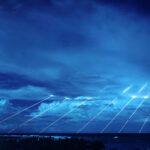
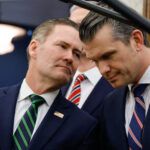
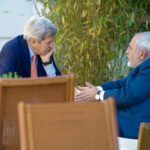
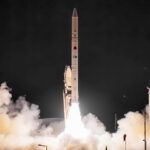
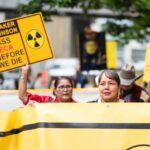
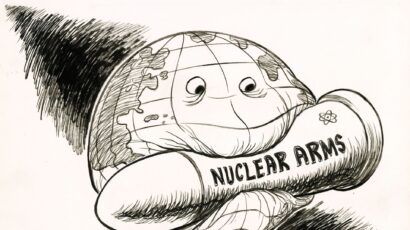




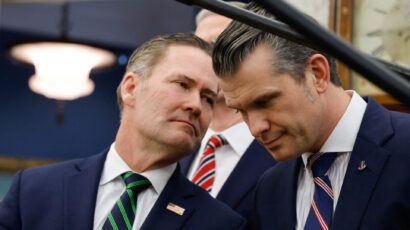
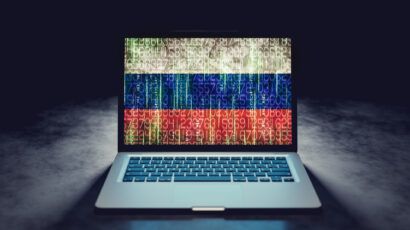

Well, the US and this bulletin acted exactly like what they did 60 years ago. They simply blame it all on the russian. Cuba crisis would not happen if the US did not invade it in the first place and placed A-bombs in turkey. And Ukraine war would not happen if US did not decide to have pro-Russian Ukraine leader overthrown and admit Ukraine into NATO.